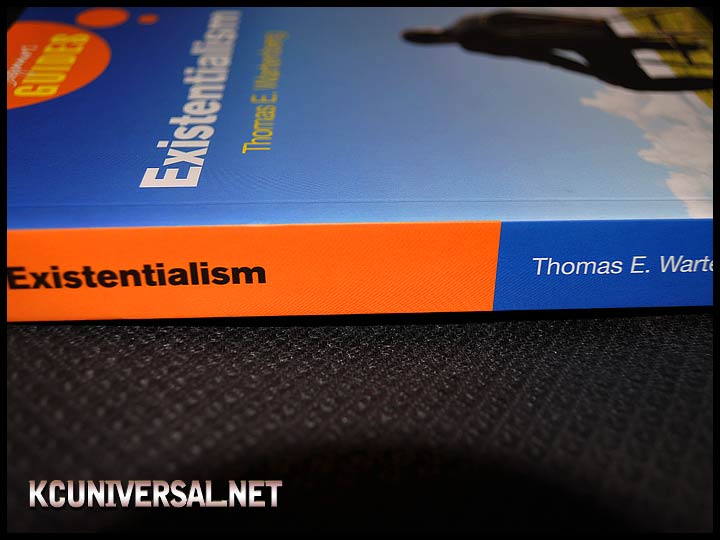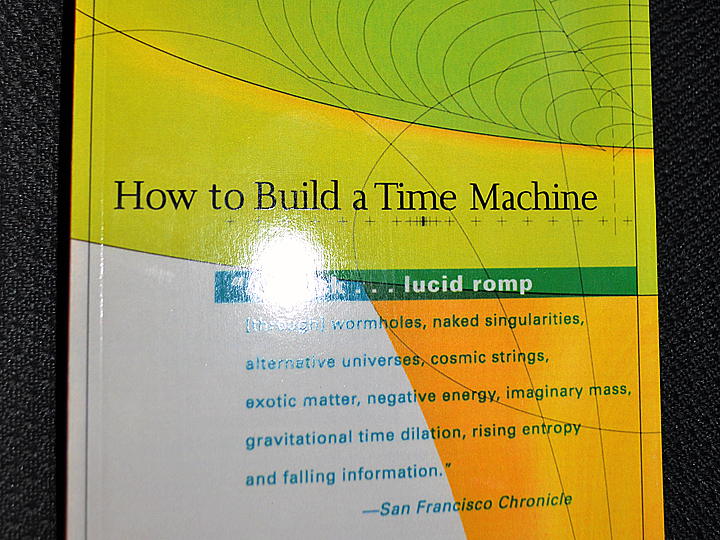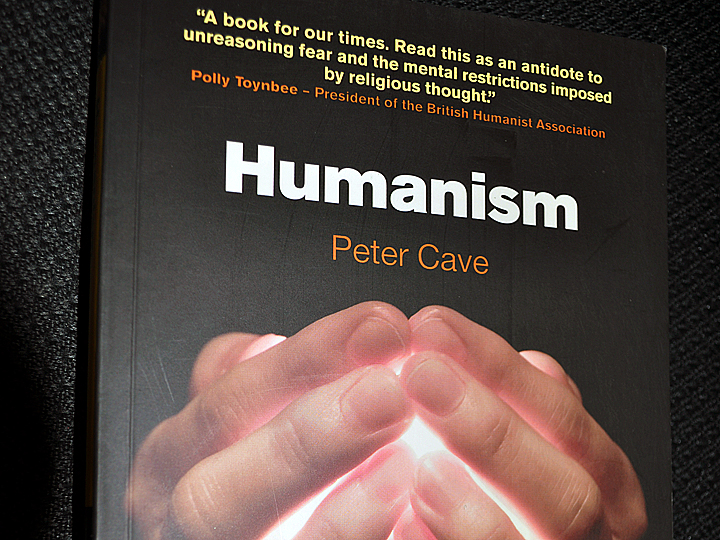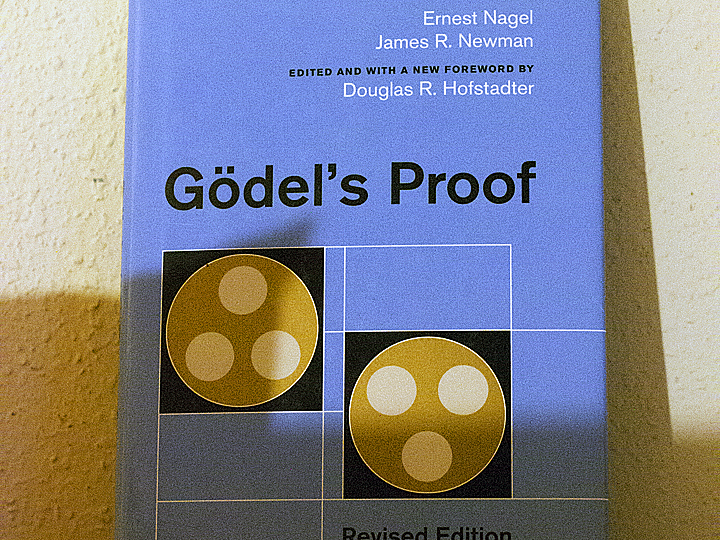- RSS loading...
"Existentialism: A Beginner's Guide" by Thomas E. Wartenberg
First book review of the "Beginner's Guide" series of books. This title brings in an approachable topic of bringing a purpose to life and making a meaningful impact of living.
👤 Kris Caballero 📅 Jul 20, 2012 🗨 0 comments 📂 Book Reviews




I don't remember how but I received two versions of the book under one order. Looking at the pictures, the two posted below the top three, one has more pages and the other has lesser pages. It just so happens that the one with more pages was "published in 2008 / reprinted in 2010, 2011." The smaller book—with 224 pages—was "published in 2008 / reprinted in 2010." The book I read was the one with more pages, and comparing it to the smaller book, there doesn't seem to be much of a difference (I just skimmed through the smaller book). Though the smaller book looks more new, I'd thought I'd share this so you'd be wary of the version you get (even though sellers would think it's the same anyway, despite the possible changes in editing the book's information, dates, errors and so forth). Anyway, onto the review:
Went and purchased this out of curiosity (what other reason is there?). I remember seeing the Dummies version of this book, as I unknowingly began browsing the Philosophy section of a bookstore a couple of years back. What caught my eye reading the back cover that time was the phrase "God Is Dead." Instead of the Dummies version, I went with the Beginner's Guides version (mainly because of cost), yet purchasing it, I still remember that phrase.
I haven't taken a Philosophy class since Fall of 2007, and it's a unique subject. I found this so because of the eloquent speaking and writing (sounds almost like a gospel). Nevertheless, author Thomas did an excellent job gently introducing what it is about life, what it's about and how we should live it (not that I don't know how to, but sometimes you want to get more out of how you're living in a deeper sense). Basically, Life is centered around YOU. It is YOU who goes and righteously defines why Life is a beautiful thing. However, you live this beautiful thing in the best way possible without any excuses. Otherwise, if you have doubts, you are responsible for anything that follows from it. Sounds like something our parents told us growing up, with the exception of us learning to suffer by experience(s). Nevertheless, finding the purpose of goodness and making the most out of freedom in Life is the aim of Existentialism. You will find there's a purpose for living—a righteous life to be lived beyond the average human.
Because of the Shakespeare-like writing, as it usually is in Philosophy, Thomas' usage of examples really made the ideas much easier to understand—ideas he introduced from the great philosophers. Most of the time, he usually used points from Jean Paul Sartre. (It made me want to take at look at his book Existentialism Is A Humanism, which I will soon get.)
At the time I'm currently writing this, breaking news erupted about the theater massacre that happened in Aurora, Colorado, USA, earlier this morning. President Obama stated in his speech that, "life is fragile." If you want to get the most out of living, and why we shouldn't take our life and our freedom for granted, this book is a requirement. As Thomas says in the book, after all, this is the one shot you have at life.
Reading the chapters on Freedom and Is Hell Other People? reminds me of Bad Religion's song "It's A Long Way To The Promised Land." Lyrically speaking, the song very much means to lead your own life and don't let the advertising and/or activists get in the way of the decisions you make in life. Do what's best for you. Do your own thing, hence the song's question, "what are you going to do?"
The A3: Authenticity, Absurdity and Anxiety. I learned about the relationship God has with us and the world, what's the big deal of having us suffer and the amount of good He can find and place.
Like The Fix Is In, this book is chocked full of information that may require one to reread it again, but I absolutely don't mind! This book provided a great stepping stone into branching out and learning even more. Other than that, I realized that my reviews, this website of mine and whatever choices I make in life are things I'm directly responsible for. Whatever I do, whatever I say and whatever moves I make, I'm ready for any consequences that may follow insomuch that I won't succumb to the agony that strikes despite it being something that was meant to happen due to my decision(s) made, and/or because I wasn't aware of it when I should've been.
Read this book, and you'll feel very bad at taking life for granted (I'm starting to feel that way now). Don't become an object of someone else just because they're jealous! Embrace life and everything that it is (some folks already lost theirs just for lining up to watch a movie). Don't let a silly thing slip you; embrace your freedom. It's your life, and you live the way you want to.
Remember: 'Hell is other people.'
CONTENTS5/5
COVER5/5
WRITING5/5
PRICE5/5
- Simplifies the popular philosophical topic that's readable for everyone.
- "Hell is Other People."
- Non-personalized information to bring meaning into your life.
- Excellent companion guide for students of philosophy.
- The newer edition is thinner than the original version, which may confuse those purchasing a copy.
PROFILE |
|
|---|---|
| Title | Existentialism: A Beginner's Guide |
| Author(s) | Thomas E. Wartenberg |
| Description | Using classic films, novels, and plays, Thomas E. Wartenberg explores the central ideas of Existentialism including freedom, authenticity, anxiety, and the Absurd. As well as discussing the ideas of such legendary thinkers as Nietzsche, Camus, and Sartre, Wartenberg shows how Simone de Beauvior and Franz Fanon use the theories of Existentialism to address gender and colonial oppression. This lively introduction reveals a vibrant mode of philosophical inquiry that pervades modern culture and addresses concerns at the heart of every human being. |
| Dedication | "For the Whartons In memory of Heinz, Nellie, and Connie and for Peter for first supporting my existential leanings and In memory of Joseph Epstein, who first rekindled the flame" |
| ISBN | 978-1-85168-593-6 |
| Book Dimensions | Width: 5.06″ (5 1/16″) |
| Height: 7.81″ (7 13/16″) | |
| Depth: 0.75″ (¾″) | |
| Page Count | 234 |
| Contents | Preface, Introduction, nine (9) chapters, Further reading, Bibliography, Filmography, Index |
| Typeset | Jayvee, Trivandrum, India |
| Cover Design | Simon McFadden |
| Author Photograph | -- |
| Published | August 7, 2008 |
| Publisher | Oneworld Publications (www.oneworld-publications.com) |
| Copyright | © Thomas E. Wartenberg 2008 |
| Printed in / Bound in | Great Britain by Bell & Bain Ltd., Glasgow |
| Book Format | Paperback, Kindle, Audible Audio |
| Quoted Reviews |
"Will make existentialism come alive for a new generation of readers. It clarifies key existentialist concepts and helps us all appreciate why existentialism was philosophy's most exciting contribution to twentieth-century thought." — Gareth B. Matthews - author and Professor of Philosophy at the University of Massachusetts, Amherst "Concise, interesting, and very readable." — William McBride - Arthur G. Hansen Distinguished Professor in the Department of Philosophy, Yale University "Wartenberg's engaging and lucid text is at once a guide to existential thought and an introduction to philosophy as such. In addition to the thought of the great philosophers, it finds philosophical insights in world literature and popular culture...and addresses students in terms that make sense in their lives." — Arthur C. Danto - author, art critic, and Johnsonian Professor Emeritus of Philosophy at Colombia University |
| Best Seller's List | -- |
| Other | Thomas E. Wartenberg is Professor of Philosophy at Mount Holyoke College, Massachusetts, USA. He is the author of Unlikely Couples: Movie Romance as Social Criticism. |
Kris Caballero
Founder of KCU Network and KCU Plus, Kris has been writing since he managed a personal blog made back in late 2005. Officially back to doing computer programming (software development) and video production, Kris enjoys reading books on Mathematics, Quantum Computing, Philosophy, playing old video/DOS games, digital video archiving, and listening to sports, public radio and classical music.
MORE BOOK REVIEWS
Comments
This policy contains information about your privacy. By posting, you are declaring that you understand this policy:
- Your name, rating, website address, town, country, state and comment will be publicly displayed if entered.
- Aside from the data entered into these form fields, other stored data about your comment will include:
- Your IP address (not displayed)
- The time/date of your submission (displayed)
- Your email address will not be shared. It is collected for only two reasons:
- Administrative purposes, should a need to contact you arise.
- To inform you of new comments, should you subscribe to receive notifications.
- A cookie may be set on your computer. This is used to remember your inputs. It will expire by itself.
This policy is subject to change at any time and without notice.
These terms and conditions contain rules about posting comments. By submitting a comment, you are declaring that you agree with these rules:
- Although the administrator will attempt to moderate comments, it is impossible for every comment to have been moderated at any given time.
- You acknowledge that all comments express the views and opinions of the original author and not those of the administrator.
- You agree not to post any material which is knowingly false, obscene, hateful, threatening, harassing or invasive of a person's privacy.
- The administrator has the right to edit, move or remove any comment for any reason and without notice.
Failure to comply with these rules may result in being banned from submitting further comments.
These terms and conditions are subject to change at any time and without notice.







![KCU Video Game Longplays: Ms. Chomp [v1.2] (PC)](http://plus.kcuniversal.net/kcu-gaming-network/kcu-video-game-longplays/pics/0011-01-ms-chomp-pc-720x405.jpg)
![KCU Video Game Longplays: Wheel of Fortune [Third Edition] (PC)](http://plus.kcuniversal.net/kcu-gaming-network/kcu-video-game-longplays/pics/0010-01-wheel-of-fortune-third-edition-pc-720x405.jpg)
![KCU Video Game Longplays: Wheel of Fortune [Second Edition] (PC)](http://plus.kcuniversal.net/kcu-gaming-network/kcu-video-game-longplays/pics/0009-01-wheel-of-fortune-second-edition-pc-720x405.jpg)
![KCU Video Game Longplays: Wheel of Fortune [First Edition] (PC)](http://plus.kcuniversal.net/kcu-gaming-network/kcu-video-game-longplays/pics/0008-01-wheel-of-fortune-first-edition-pc-720x405.jpg)



Comments